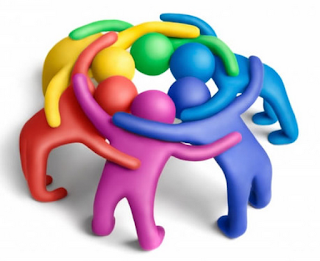Think about the cultural diversity you see in your colleagues at school, in your neighborhood, in your workplace, and also, possibly, within your family. Consider all the aspects that make up culture, including race, religion, political affiliation, sexual orientation, varying abilities, and so on.
Think about the cultural diversity you see in your colleagues at school, in your neighborhood, in your workplace, and also, possibly, within your family. Consider all the aspects that make up culture, including race, religion, political affiliation, sexual orientation, varying abilities, and so on.
Do you find yourself communicating differently with people from different groups and cultures?
In my endeavors and dispositions, I do find myself talking differently with people from the various groups and cultures. This happens especially in my neighborhood and my workplace. Most people in my workplace are from different cultures, races, religions, sexual orientation, and political affiliations. Within my family, the communication is usually mutual and similar since we have almost the same cultures and other diversities.
If yes, in what ways do you communicate differently?
I talk with people who are diverse from me almost on a daily basis. I meet these individuals in school, at the workplace or in the neighborhood. This communication is different as compared with the communication I have with people I share same values or diversities e.g. family members. When communicating with individuals who are different, I perceive them to be strangers and alert myself for any possibility or eventuality. I am usually full of fear, anguish, discomfort, or suspicion when communicating with such people. These vices make me not embrace or use the appropriate verbal, nonverbal, and listening cues. In most scenarios, the communication turns out to be ineffective or futile. I am always in haste to conclude a conversation with a stranger because I lose the sense of security by conversing with a person from a different group or culture. However, when communicating with related persons, I feel comfortable and use appropriate verbal, nonverbal, and listening cues resulting into effective communication.
Based on what you have learned this week, share at least three strategies you could use to help you communicate more effectively with the people or groups you have identified.
We live in a global village that has people with diverse cultures and values. These differentiations shouldn’t be a hindrance to effective communication between different communicators. One can you use the following strategies to ensure effective communication amongst communicators;
a. Embracing the platinum rule. The platinum rule stipulates that “Do to others as they would like to be treated.” This rule involves putting oneself in the shoe of the other, so as to understand what he or she feels like about a given issue. In my endeavors, I would treat all people the way they need to be addressed so that they can feel comfortable and relaxed around me. Such a pleasant setting will foster our communication and make it efficient.
B. Avoiding cultural myopia in my endeavors. Culture bias is a form of a kind of nearsightedness grounded in the belief that one's culture is appropriate and relevant in all situations and to all people. If we avoid this vice, I would consider and appreciate other cultural perspectives and therefore ensure effective communication with such diverse people.
c Becoming consciously aware of the nonverbal cues and behaviors. When you are dealing with other people, you should be alert and knowledgeable to comprehend the signals. Notably, the nonverbal cues do not mean the same thing across cultures or diversities. This strategy will ensure there is effective nonverbal communication between communicators from different cultures/diversities.


Hi Sheila!
ReplyDeleteI too, picked avoiding cultural myopia and implementing the Platinum Rule as strategies to help on communicate with individuals of diversity. I always heard of the famous saying "treat others the way you wanted to be treat", however, I did not know the specific term of the saying was known as the Platinum Rule until learning it within this week's course materials. In addition, I have acknowledged that as we become openly aware of other's cultures versus our very own culture, we are creating an attentive mindset which benefits towards avoiding cultural myopia. Thank you for sharing this awesome post! :)
Hi Shelia:
ReplyDeleteAll of your strategies are great when it comes to effective communication. Since taking this class, I have been more conscious of how I communicate with others whether it's the parents, my children, peers, colleagues and groups of people from other cultures. I have noticed a difference before speaking I try not to use very little body language because I get all hyped up in a conversation. Thanks to this class and your insights has made me to communicate more effectively with every one that I talk to. Thanks for sharing!